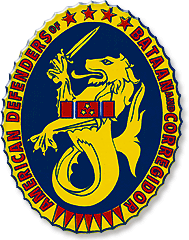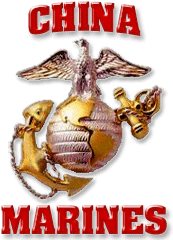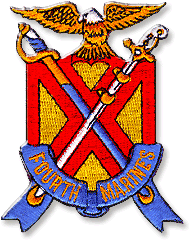


 |
 |
 |
| Fourth Marines Band: "Last China Band" |
|
THE EDGE |
||
|
CHAPTER FIVE - Return to Niigata |
||
| Previously published in “EX-POW BULLETIN, March 1991" | ||
|
There are things the airlines never tell you.
Not how many hours you will be in the air, but how many hours you will be on
the ground, waiting to get in the air. It was the same way again, seventy mile an hour winds were blowing across the Pacific, part of the jet stream from west to east. We were going to have to stop in Anchorage to refuel making the Los Angeles, Seattle, Anchorage, Tokyo trip a twenty hour ordeal. Then Narita, the Tokyo airport was being torn apart by unhappy farmers. They were angry over their dispossessed land and willing to show it with scythes, rakes, brooms and howling banzai charges against the plastic clad riot police. It took nearly six hours to extricate ourselves from that melee and to sanctuary in the new Atani hotel, high up in a silver tower. |
||
|
||
|
Some forty years ago I had traveled from Niigata, on the Sea of Japan, to
Yokosaka, the Japanese naval base near Tokyo, to meet our liberators who,
after four years of fierce battle, had come to liberate us. Tokyo was rubble
then but now it exuded prosperity as shining and bright as the silver tower
we were staying in. Tomorrow, why tomorrow we would be in Niigata! I dreamt fitfully that night of Niigata, pushing and straining against an old two wheeled cart I had pushed many times before in the coal yards of Rinko. In my dreams it would hardly move. I woke tired, fretful to see my wife, Bertie, already dressed and my travel clock reading four a.m.. It seemed only minutes before that we had sunk exhausted on the bed, but she was up as excited as I was. We had talked at dinner the night before of what we might expect in Niigata. Would the old camp be there? Was I emotionally ready to look back at all those days of misery and remember the tragedy, the constant hunger, the death, the brutality in a camp identified as the worst of all P.O.W. camps? Would I see “Cyclone Pete,” the Honcho Domo of Camp 5-B, swaggering down the dirt paths, Samurai sword in hand yelling “Bakka, konyero!” at the coal blackened faces of the POWs in 5-B. There, too, were the stark white faces from the Marutsu gang. They worked the docks, unloading ships of soy beans, methylene and other commercials. We envied them and their opportunity to enhance their food supply. In early June of 1945, the Canadians, British, Dutch, and Americans from the armies, marines and navies of their countries were stretched to the limit of their endurance in this fourth year of World War II. Many of them sick from malnutrition weighing a scant one hundred pounds or less, their enlarged eyes flushed with a low grade fever reflected their desperate needs. They were fragile, breakable, anguished and their life was sad. The only horizons they had ever known, seemingly had vanished. In late 1945 with the war over and back in the land of milk and honey, I was able to put my hostilities to rest. There were many reasons I could not live with hate. “A man came to me with hostility and I let him keep his gift.” I would teach my sons that simple Confucian parable, but now, at the gate to Niigata, I was not so sure. The Bullet Train from Tokyo station was a long glide over velvet. The Japanese Landscape was a muddle of browns and purples until finally, a glimpse of the sea. The azure early morning light typical of Niigata, told me we were near our destination. I remember the train in 1943 crawling up from Shiminoseki via Kobe to an obscure siding near the Rinko coal company. We would work there, most of us, until the bomb fell at Hiroshima a few hundred miles away. The taxi bounced and swayed over the rutted roads and with a shuttering yaw turned into the Mitsubishi Metal works high on a hill overlooking the city. The guard at the gate spoke no English, but my rudimentary Japanese finally got him to use his telephone, and a young Japanese man appeared who spoke our language. He knew of no prison camp near or far. Yes, he had not been in Niigata long but he, nor anyone in the city, had ever heard of a prisoner of war camp in Niigata. |
||
|
|
||
|
Prisoner of War Camp 5-B, Niigata, Japan, 1945 |
||
|
We drove around the dirt roads that circled this high point along the coast.
We stopped, because I remember staying in nearly this same spot watching the
fighter bombers from the U.S. Navy carriers winging over the city to attack
the ships in the harbor and the oil refineries dotted along the coast
flashing a wall of fire as they emptied their guns and rockets. The camp was gone, a few empty buildings in their place. My wife and I embraced, the tears flowing from our eyes. She knew this place as well as I. She had heard all the stories, knew all the people who had died here. Somehow, we became quiet, yet elated that we had come this long way. We knew, too, that we could go home again. In the first days of peace in Niigata, the fighter- bombers of the U.S. Navy appeared. Slowly they found our camp and then with their wings nearly touching, rolled across the tiled roofs of our buildings. Their canopies were back, their hands clasped in victory above their heads as they rolled their planes over us again and again and again. We waved our makeshift flag and cried unashamed of our grief and our exultation. On August 27, 1945 flying heavy USS torpedo bombers from the deck of the USS Lexington (The Blue Ghost), they dropped food and medical supplies. The city of Niigata has never acknowledged a prisoner of war camp in Niigata. Cyclone Pete, the Japanese sergeant major, was sentenced to eight years at hard labor. Two of the camp commanders were executed along with a medical orderly; another received hard labor for five years. |
||
|
|
| Full Text of THE EDGE | Please Click Below for: |
| CHAPTER ONE - "The Edge" | Page 13 |
| CHAPTER TWO - First Duty Stations | Page 19 |
| CHAPTER THREE - We Were Captured | Page 39 |
| CHAPTER FOUR - In The Camp | Page 59 |
| CHAPTER FIVE - Return to Niigata | Page 80 |
| From the Diary The Letters Poems and Short Stories "Marines in Review" Epilogue Chronology Bibliography |
Page 91 |
| Return to THE EDGE Introduction Page |
| EMAIL: info@4thmarinesband.com |
| ©2000-2021 lastchinaband.com. All rights reserved. |